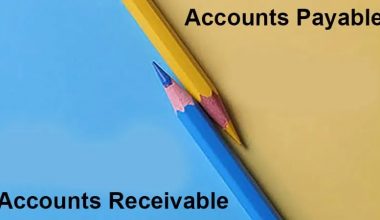In a case where you file a homeowners insurance claim, your insurer will dispatch an adjuster to assess the damage and calculate the amount of the claim. In the best-case scenario, your settlement will be based on the cost of repairing or replacing a damaged structure or property. But what if you don’t think it’s a fair payout? What if you’re not sure what your coverage covers or if the insurance company adjuster was thorough enough? That’s where a public adjuster comes in.
Here, you’ll learn how a public adjuster can help you with the insurance claims process and how you can find a good one.
What Is A Public Adjuster?
A Public insurance adjuster represents policyholders. Individuals and organizations use these licensed specialists when they require assistance submitting a claim or believe the amount granted by their insurance provider is inappropriate.
Public adjusters can submit and settle claims for flood, fire, smoke, wind, and hurricane damage, as well as harm from other risks and even loss of company income if property damage is involved.
What Is the Purpose of a Public Adjuster?
A public adjuster, as an independent insurance professional, works for the policyholder to ensure that their claim is paid in a fair and expedient manner. Their responsibilities may include:
- Assessing damage and calculating the cost and time required to restore or replace property or structures.
- Assisting you in comprehending your insurance policy, tracking the claim, filing documentation, and meeting deadlines.
- Serving as a go-between for you, the insurer, and any other third parties, such as attorneys or witnesses.
- Getting reasonable compensation from your insurance company
When Is a Public Adjuster Necessary?
There is no hard and fast rule for when you should hire a public adjuster, but there are some scenarios that warrant consideration:
- You’re filing a substantial claim for high-value, extensive, or complex home damage, such as a fire.
- You are not satisfied with the assessment made by your insurer’s adjuster.
- You believe your insurer’s adjuster undervalued your claim or that your settlement is inequitable.
- You require assistance with a difficult claim or the claims process.
What Does a Public Adjuster Charge?
The majority of public adjusters charge a percentage of the overall claim settlement. Depending on the magnitude of your claim, their compensation might range from 3% to 30% of your insurance payment.
For example, if your ultimate claim amount is $250,000 and your adjuster charges 10%, you’d spend about $25,000 in fees.
A flat rate or hourly rate are two more prevalent price types.
The price structure of a public adjuster varies depending on the nature of your claim, where you live, the adjuster you choose, and the nature of your claim.
If you’re thinking about employing a public adjuster, seek multiple homeowners insurance quotes or estimates to see how much you would pay based on the claim type and your area.
How Do You Find A Public Adjuster?
It is extremely simple to locate a public insurance adjuster. Begin by searching the website of the National Association of Public Insurance Adjusters (NAPIA). Every public adjusting firm required to be licensed in their state of operation is listed in the NAPIA Directory. You can search for adjusters in your region by entering your city, state, or ZIP code.
A reference from friends or family members is another technique to find a public insurance adjuster. You should ideally hire someone reputable and effective. Browsing online customer reviews can be beneficial as well.
Once you’ve identified a few potential candidates, find out how much they charge. The majority of public adjusters retain a share of the ultimate claim award. It could be as low as 5% or as high as 20%. If you have a substantial claim with a possible large compensation, consider the cost before hiring a public adjuster.
What Can You Expect If You Hire A Public Adjuster?
A public adjuster will handle the entire claim process on your behalf if you hire one. They will examine the damage to your house, conduct a thorough examination of your claim, determine their suggested settlement, and work with your insurance provider to process your refund.
Before settling the claim, you have the option of negotiating a higher payout with the insurance carrier. If you pick this option, your public adjuster will function as a liaison for you, so you will never have to talk with a representative or negotiate on your own.
Working with a public adjuster, as previously stated, may result in a bigger payout. According to research by the Florida Association of Public Insurance Adjusters (FAPIA), homeowners who employed their own insurance claims adjuster earned a better settlement from their insurers. According to the survey, the average payout for homeowners who used a public adjuster was around $22,266, compared to $18,659 for those who did not use a public adjuster.
But, choosing a public insurance adjuster does not guarantee that you will receive more money. Your insurance company will evaluate the conclusions of the public adjuster, but they may disagree with the suggested payout.
Public Adjusters Vs Independent Adjusters
Regardless of who hires an insurance adjuster, their role is to assess property damage and determine how much money should be paid out on a claim. Yet, there are three basic types of insurance adjusters, each of which is engaged by a different group. Here’s how it works:
Insurers employ corporate adjusters, who are dispatched to review claims lodged by the company’s policyholders.
Independent Adjusters work for insurance firms on a contract basis and are typically recruited on an as-needed basis when there is a rise in demand or for their specialized expertise.
Individuals hire public adjusters to help them analyze damages, file claims, and negotiate with insurers to receive the best possible reimbursement for their claim.
Do I Need to Hire a Public Adjuster?
Anyone considering filing a property insurance claim should consider employing a public adjuster, especially if the claim is big. You have little to lose as a policyholder: Many public adjustment firms will come to your property for free to assess the extent of the damage and if an insurance claim should be filed.
Even if a policyholder is certain of the monetary value of their property loss, it is prudent to seek a second assessment. When adjusters examine the property, they frequently discover that the policyholder’s loss estimate is considerably too low. A policyholder may forget or be unaware of all the expenditures that can be included in a claim, but public adjusters are specialists who will not ignore any cost.
For example, if wind destroys a portion of a roof, a homeowner is likely to underestimate the cost of a new roof and may even overlook crucial expenses such as the cost of removing the damaged roof.
Filing an accurate, detailed claim is critical to receiving the correct amount of money from your insurer and covering the whole property damage. Keep in mind that even the greatest home insurance providers will never pay more than the amount claimed. Policyholders must be certain that they are claiming the correct amount, and employing a public adjuster is the best method to accomplish this.
The Benefits and Drawbacks of Using a Public Adjuster
Using the services of a public adjuster isn’t always the best option. These are some advantages and disadvantages to consider.
Benefits
#1. They may be able to obtain a larger settlement for you.
The key benefit of employing a public adjuster is having an experienced professional negotiate for the most generous claims award possible. They can assist you in documenting everything you’ve lost and identifying potential harm that the insurance company’s adjuster may have overlooked.
#2. They can help you save time.
Filling out documents and dealing with the insurer take a significant amount of time and energy when filing a major insurance claim. Hiring a public adjuster may be well worth the money if you already have a difficult full-time work, are busy caring for children, or simply don’t want to deal with the trouble.
#3. They can assist you with the claims process.
Insurance plans are filled with legalese and nitty-gritty minutiae that the average individual may find difficult to comprehend. An expert public adjuster can assist you in better understanding your coverage and the claims procedure.
#4. They can assist you in disputing a settlement.
If you filed your own claim but are dissatisfied with your insurer’s settlement offer, you can hire a public adjuster to analyze the case and negotiate a better payout.
Drawbacks
#1. They are not appropriate for every claim.
You may be better off making modest, easy claims on your own and saving the adjuster’s charge. (Some adjusters will refuse to work on a claim if the prospective payment is too low.)
#2. Payouts are limited by policy restrictions.
The best public adjusters are knowledgeable and skilled at their jobs, but they are not magicians. A public adjuster cannot obtain more money from the insurer than you are entitled to under your policy.
#3. Their charge will be deducted from your compensation.
Public adjusters often charge 5% to 20% of the overall settlement. In some situations, though, you will be charged a flat or hourly amount. Some jurisdictions cap the rates, and they may be negotiated — but you’ll have to pay for the adjuster’s time and skills one way or another.
#4. They are not available in every state.
In some areas of the United States, public adjusters are unable to assist with home insurance claims. In Kansas, for example, public adjusters can only work on commercial claims, whereas public adjusters are not permitted at all in Arkansas.
#5. They are not all genuine.
Scam artists emerge during disasters, posing as public adjusters and taking advantage of vulnerable people. To avoid this type of circumstance, follow the advice provided below.
Choosing a Public Insurance Adjuster
There are several factors to consider before selecting a public adjuster. But first, look into their credentials. Public insurance adjusters must be licensed in each state where they work, and they, like other professionals, must enroll in continuing education courses to keep their licenses current.
If a contractor or attorney is not licensed, never use them for claim adjustment services. It is illegal to practice without a license, and the license is a vital indicator of expertise and qualification. Here are some extra points to consider:
Will your adjuster personally handle your claim?
Some public adjustment firms send one adjuster to estimate a claim and another to follow up and completely investigate it. You may prefer to work with a single adjuster as a policyholder, but having a firm send more than one individual can be beneficial. One adjuster may take over the claim simply because they have more knowledge with a particular sort of damage, such as fires or flooding.
Can you receive a recommendation?
A recommendation from a friend can be quite beneficial. If you don’t know anyone who can recommend an adjuster they’ve personally worked with, request the contact information of some of their prior clients from your possible adjuster. Check to see whether others have had a positive experience dealing with them.
You can also read public adjuster reviews online. Although membership in the National Association of Public Insurance Adjusters (NAPIA) does not exclude someone from being a licensed or qualified adjuster for your claim, it does provide access to an online directory of public adjusters.
How long has your public adjuster been in the business?
Based on the severity and complexity of the claim, a policyholder may want to engage the services of a more experienced public adjuster. Here are a few questions to consider:
- What kinds of claims have you handled?
- Do you have any experience with my insurance company?
- How long have you been doing this?
More experienced adjusters typically demand a larger cost. Note that the number of years an adjuster has been in practice or the volume of claims they handle each year are not always indicators of their degree of experience. A really experienced adjuster may only take on a dozen claims each year, but they may prefer to work on large, intricate claims for large sums of money.
What are the adjuster’s communication guidelines?
A public adjuster usually handles the entire claim for their clients, including correspondence with the insurer. However, some policyholders may still wish to be involved. Before you choose a public adjuster, discuss this with them. You want to work with an adjuster with whom you feel at ease communicating throughout the procedure.
Are Public Adjusters A Good Idea?
In some circumstances, involving a public adjuster speeds up the claim process. They are familiar with the procedure and frequently engage with insurance companies.
Why Are Public Adjusters Needed in the Insurance Economy?
A public adjuster can assist you with the claims process and guarantee that your reimbursement is fair and appropriate for the damage and coverage.
Who Typically Pays The Public Adjuster?
The public adjuster is usually paid by the policyholder.
What Are the Types of Claims Adjusters?
Company adjusters, independent adjusters, and public adjusters are all sorts of claims adjusters.
In Conclusion,
Anyone whose home is damaged in a disaster will be grateful for homeowners insurance. Nevertheless, filing a claim can be an arduous affair, requiring hours of meticulous documentation – and if you make any mistakes, you may receive a reduced settlement. This is where public insurance adjusters come in.
Related Articles
- INSURANCE CLAIMS ADJUSTER: Jobs & Salary(Opens in a new browser tab)
- HOW DOES CAR INSURANCE WORK IN 2023?(Opens in a new browser tab)
- CATASTROPHIC INSURANCE: Is Catastrophic Insurance Worth It(Opens in a new browser tab)
- Car Accident Lawyer: Fees and How they Work(Opens in a new browser tab)






